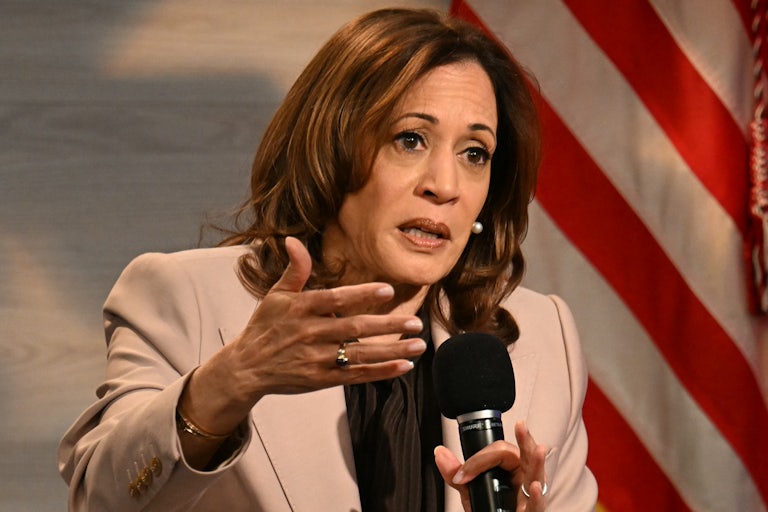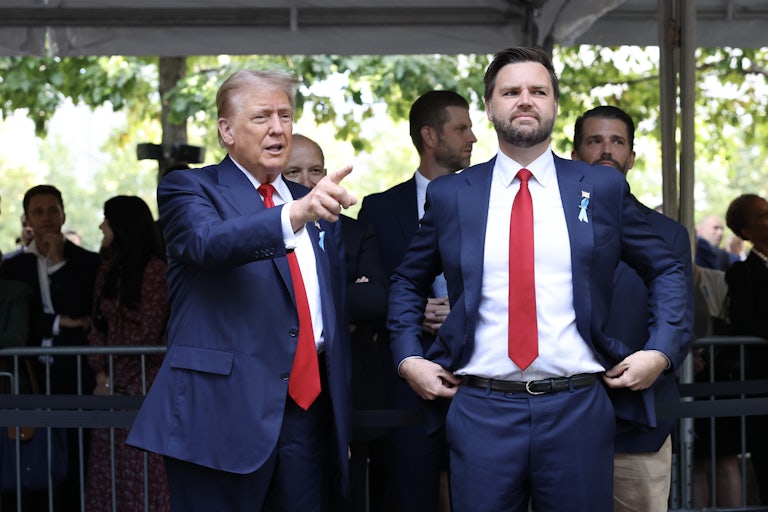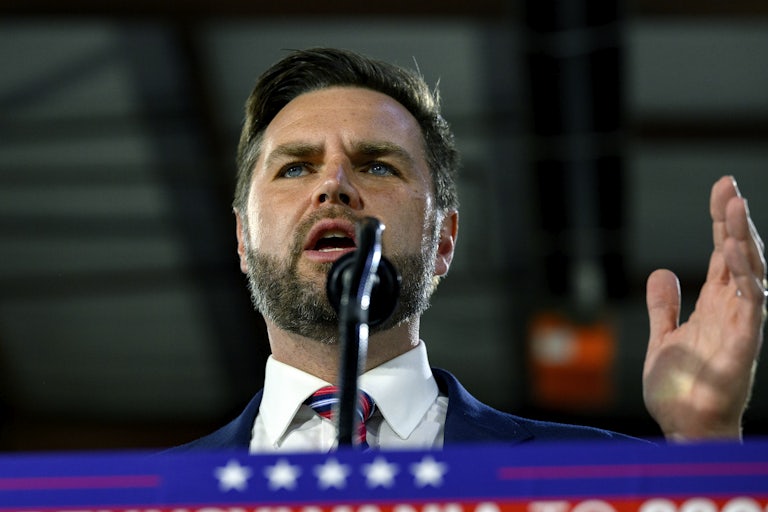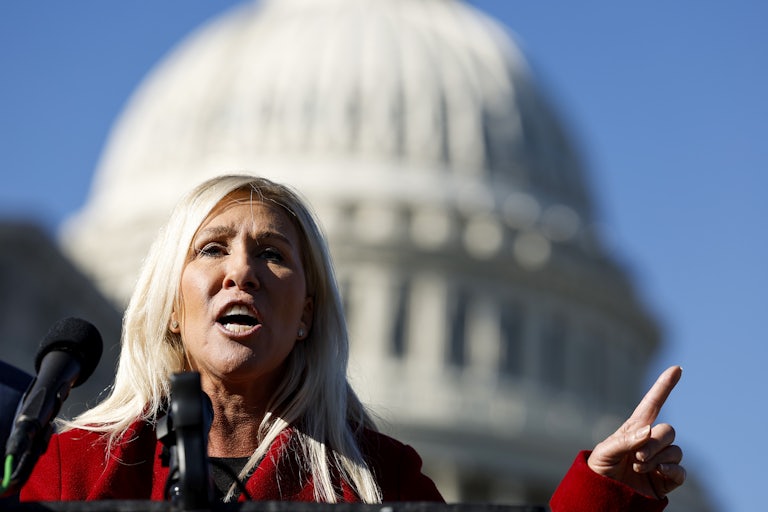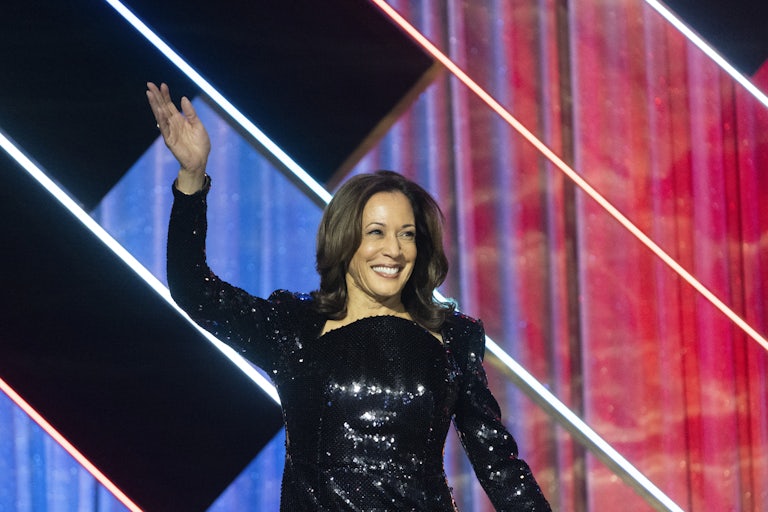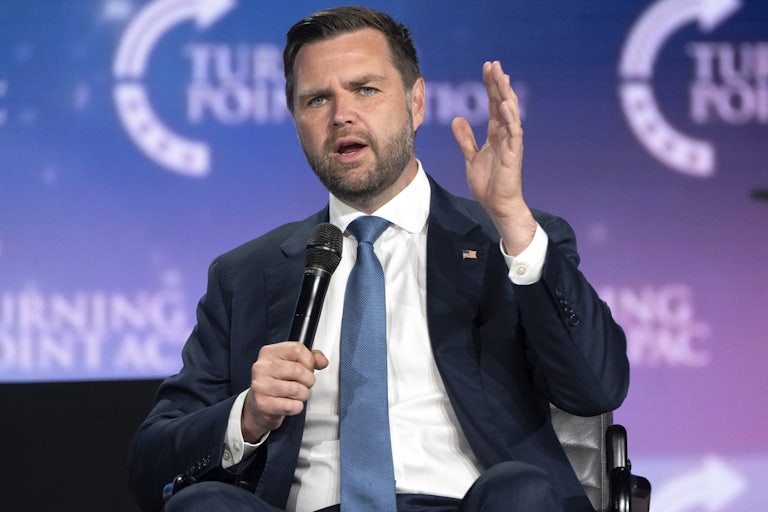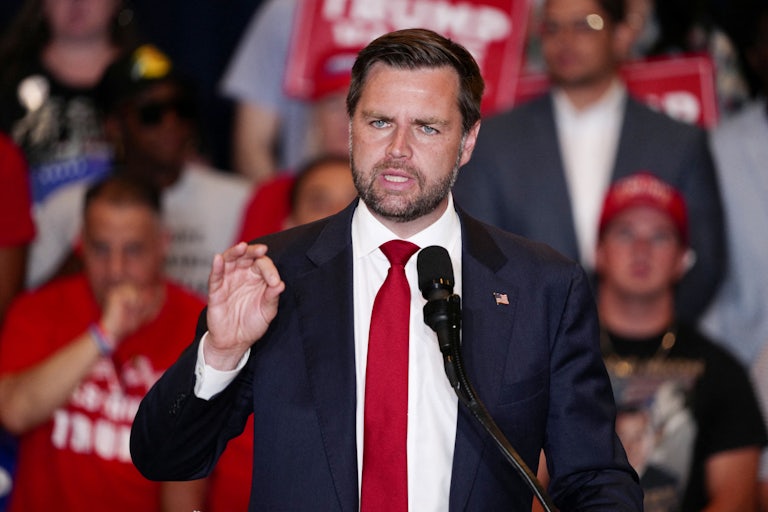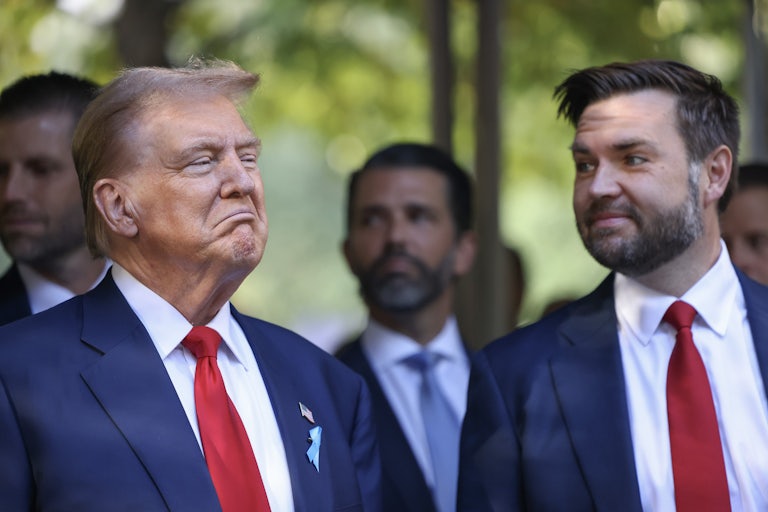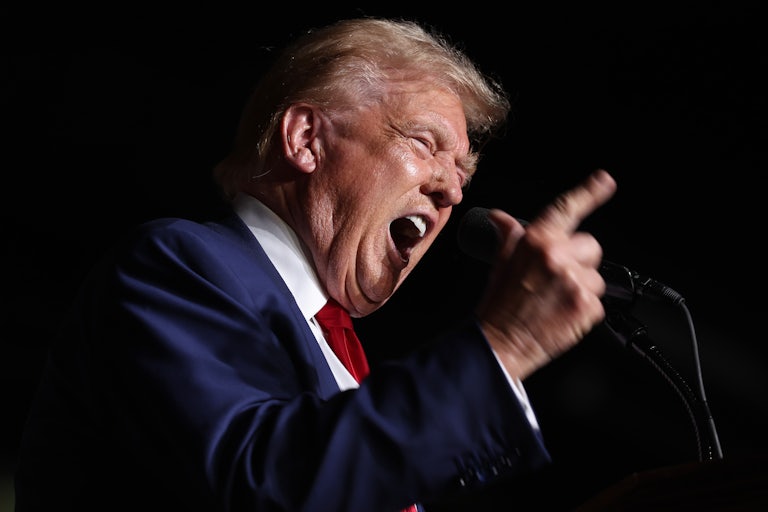Harris Refuses to Give Clear Answer on Gaza for Five Straight Minutes
Kamala Harris could only offer the concepts of a plan to resolve the crisis in Gaza.
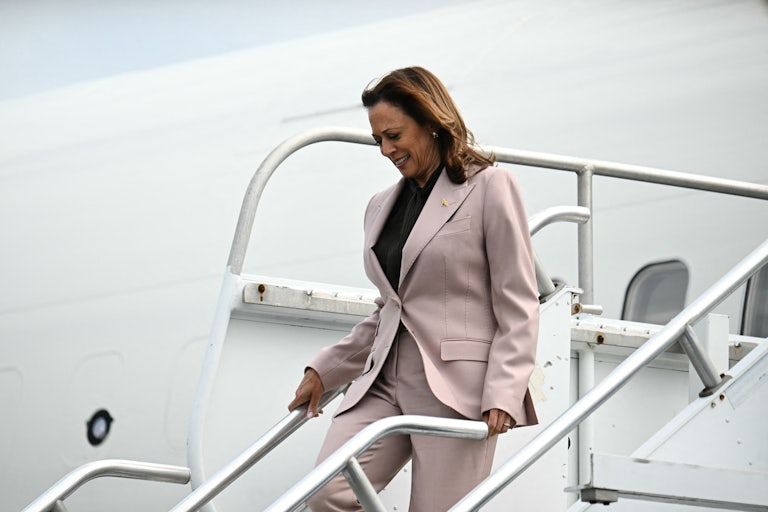
Kamala Harris clung to her lackluster talking points on Israel and Gaza Tuesday as she faced questions from a panel of journalists from the National Association of Black Journalists.
Tonya Mosley of WHYY, a Philadelphia-area public radio station that co-hosted the event, turned the subject of Harris’s 45-minute live interview to Israel’s catastrophic military campaign in Gaza, which has killed more than 41,000 people.
“You’ve called for a cease-fire hostage deal and a two-state solution as an end to the war for many months now. And while you’ve expressed support for Israel to defend itself, a two-state solution and a cease-fire are at odds with what [Israeli Prime Minister] Benjamin Netanyahu has said is their right to defense,” Mosley said.
“If it matters, as you say, how Israel defends itself, where do you see the line between aggression and defense? In our power as Israel’s ally to do something.”
“OK, a lot to unpack in what you just said, so let’s start with this,” Harris replied.
“I absolutely believe that this war has to end, and it has to end as soon as possible. And the way that will be achieved is by getting a hostage deal and a cease-fire deal done. And we are working around the clock to achieve that end,” she said.
Already, Harris’s response was essentially copy-pasted from her campaign website’s Issues page (which itself was copy-pasted from Joe Biden’s reelection site). “She and President Biden are working around the clock to get a hostage deal and a ceasefire deal done,” the section reads.
Here, “working around the clock” apparently serves as a kind of euphemism for “stalled talks with Netanyahu,” who has plainly said, “There is not a deal in the making.”
In total, the Harris-Walz campaign offers only three sentences about Israel and Gaza on its Issues page, and Harris seemed determined to make them stretch as far as possible in her conversation Tuesday.
Harris reminded the audience of the 1,200 people who were killed during the October 7 massacre. “And yes, so I have said Israel has a right to defend itself. We would. And—”
“But Madam Vice President,” Mosley interrupted, seemingly sensing that Harris was not on track to actually answer her question. “I think my ask is the difference between aggression and defense here.”
“No, no let me finish,” Harris said. “No, but it’s important to put it in context. Which is what I’m doing, and I’ll get to that.” As the vice president went on, she continued to rely on statements she’d made in the past, as opposed to offering a genuine answer to the interviewer’s question.
Harris insisted that how Israel defends itself matters—a line she’d first delivered after speaking with Netanyahu in July and has repeated several times since. The statement implies that there are theoretically some boundaries that might limit Israel’s defense, but Harris did not deign to illuminate them—even though that was the question.
Instead, Harris simply said, “And far too many innocent Palestianans were killed. Women and children. We have seen with horror the images coming out of Gaza. And we have to take that seriously. And we have to agree that not only must we end this war but we have to have a goal of a two-state solution because there must be stability and peace in that region.”
Harris stated that “our goal is to ensure that Israelis have security and Palestinians in equal measure have security, have self-determination and dignity.” Another line ripped from her talking points.
“What levers does the U.S. have to support Palestinians in their right to self-determination?” Mosley asked. “And is it even possible as Israel’s ally?”
“Well, absolutely,” Harris replied.
“I have been actively involved in meeting not only with Israeli officials but with Arab officials to talk about how we can construct a day-after scenario where we participate in ensuring those exact goals that I outlined,” Harris said. She said that there would be no reoccupation of Gaza and the “territorial lines” would remain the same.
Harris added that while she hoped to create peace and stability, she didn’t want the kind of stability that might “empower” Iran.
Eugene Daniels of Politico also jumped in to ask a follow-up, which, spoiler alert, went similarly unanswered.
“Madam Vice President, just to follow up really quickly, is there a specific policy change that you as president of the United States would say you would do, that would help this along? Because you have gotten a lot of credit for emphasizing the humanity of Palestinians, but what I often hear from folks is that there is no policy change,” Daniels said.
“Is there a specific policy change, as president, that you would do in our helping of Israel end this war?”
“We need to get this deal done,” Harris insisted. “And we need to get it done immediately. And that is my position and that is my policy. We need to get this deal done.”
“But in the way that we send weapons, and the way we interact as their ally, are there specific policy changes?” Daniels pressed.
Harris said that she was “entirely supportive” of a U.S. pause on the shipment of 2,000-pound bombs to Israel, after the U.S. had already sent at least 10,000—the same kind that were likely used to strike at least one humanitarian zone in Gaza. The U.S. is still providing Israel with 500-pound bombs.
“There is some leverage that we have had and used,” Harris said. She said she would not disclose private conversations, but said she’d been involved in cease-fire talks with Netanyahu and officials from Qatar and Egypt.
“We are doing the work of putting the pressure on all parties involved to get the deal done. But let me be very clear also, I support Israel’s ability to defend itself. And I support the need for Palestinians to have dignity, self-determination as we move forward and get a two state-deal done.”
Several Israeli officials told ABC News that Netanyahu has purposely sabotaged negotiations to free the remaining hostages in Gaza, through his insistence that Israel retain control of the Philadelphi Corridor.
